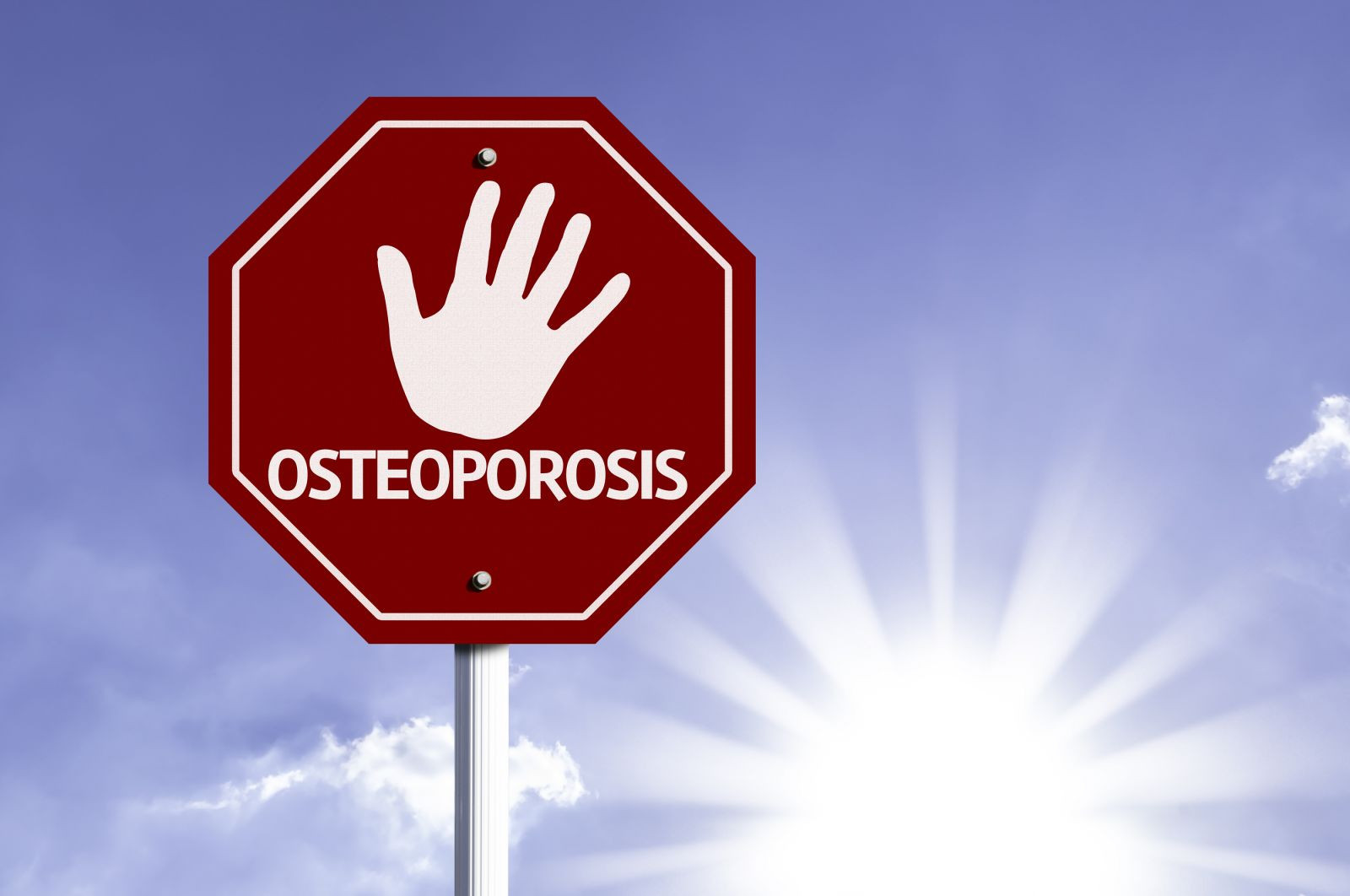
What are somatic workouts?

How to curb your stress eating

How to spot Parkinson’s disease symptoms

8 simple ways to reduce ultra-processed foods in your diet

Heart failure symptoms in women: How they’re different

GERD diet: Foods to avoid to reduce acid reflux

Strong is the new skinny

Everyday habits that sneakily weaken your bones

Don’t wait to get help for back pain

Correcting how you walk may ease osteoarthritis knee pain
Medications Archive
Articles
Generic or brand-name drugs?
Image: Thinkstock
Ask the doctor
Q. I would like to take generic drugs instead of brand-name drugs whenever possible, because they're cheaper. But are they really as effective?
A. First of all, generic drugs contain the exact same active ingredients as the brand-name versions. Second, in the United States, before approving a generic drug, the FDA must test it to be sure that the manufacturer has produced the same molecule, and that it achieves the same levels in the blood as the brand-name drug. Third, there have been many careful studies comparing generic drugs (once they have been approved) to their brand-name equivalents.
Has the new sexual desire drug panned out?
Image: iStock
Flibanserin is the first treatment of its kind. But it comes with a steep price tag and severe health risks.
It's now six months since the FDA approved flibanserin (Addyi), which is the first medication for sexual desire disorders. The drug was hailed as a "female Viagra," but is it living up to the hype? "It's not the solution we were hoping for," says Dr. Hope Ricciotti, editor in chief of Harvard Women's Health Watch and an associate professor of obstetrics, gynecology, and reproductive biology at Harvard Medical School.
Generics vs. brand-name drugs? Go for generics, doctors' group urges
News Briefs
New guidelines from the American College of Physicians (ACP) urge doctors to prescribe generic medications whenever possible, rather than more expensive brand-name medications. The guidelines were published online Nov. 24, 2015, in Annals of Internal Medicine. An ACP committee, led by Harvard Medical School's Dr. Niteesh Choudhry, analyzed more than 2,500 studies and found that brand-name prescription medications are more likely to be prescribed, but not filled. The committee also observed that people do a better job of sticking to a medication regimen if they take generics, since the drugs are cheaper and people are more likely to get prescriptions filled. (If you're more likely to take a medication, you're more likely to get better.) Do generics work just as well? The committee found that the vast majority of the evidence showed generic drugs are as effective as brand-name medications when it comes to health outcomes. If your doctor prescribes a brand-name medication, ask if there's a generic that will do the same job and save you money.
Low back pain attacks: One pill may be enough
Image: Thinkstock
In the Journals
Adding muscle relaxers or narcotic pain relievers to the nonsteroidal anti-inflammatory drug (NSAID) naproxen (Aleve) did not improve pain or function for people who went to emergency rooms seeking help for severe low back pain, according to a study in The Journal of the American Medical Association.
The study followed a group of 320 people who visited the same emergency room in the Bronx, N.Y. None had symptoms that would suggest disk-related back pain, like shooting pain down the back of the legs (sciatica). They were all advised to take naproxen for 10 days and were chosen at random to add one of three additional pills: the muscle relaxer cyclobenzaprine (Flexeril); ox-ycodone (Percocet), a narcotic pain reliever; or a placebo.
BPH drugs linked to small risk of falls
In the Journals
Alpha blockers, a type of medication that many men take for urinary difficulties caused by an overgrown prostate, are associated with a dangerous but very small risk of falling, according to a recent study in BMJ. This should reassure men who have heard that the drugs could cause dizziness from a sudden drop in blood pressure.
The Canadian study identified more than 147,000 men in Ontario prescribed one of three drugs: alfuzosin (Uroxatral), silodosin (Rapaflo), and tamsulosin (Flomax). Most of the men (84%) took Flomax, although all three drugs work the same way.
Do you need a drug for osteoporosis?
Image: Bigstock
Several medications can maintain or increase bone density. You can choose one based on your health and preferences.
Most of what we read about hip fracture isn't good. It is a major cause of disability, nursing home admissions, and death in older women. But there is a promising trend: hip fractures in the United States have been on the decline since 1996. Although better nutrition, increased physical activity, and education on fall prevention may have played a role, the drop in fractures has also coincided with the widespread availability of bisphosphonates—a class of drugs first approved in 1995 to increase bone density.
What you should know about antiviral drugs
Flu season still has a few months left, and it is not too late to get a flu shot if you have not done so already.
Image: Thinkstock
They may help reduce symptoms of the flu, but they're not for everyone.
Once-a-day blood pressure medication
Ask the doctor
Q. I take my blood pressure medication twice a day. Or at least I am supposed to, but I sometimes forget the second dose because my evenings tend to be really busy. What can I do?
A. One idea is to leave a sticky note on your bathroom mirror or near your bed as a reminder. Or try using an alarm (either a traditional alarm clock or one on a smartphone) that rings close to the time when you normally go to bed. You might also consider taking the second dose with dinner, assuming your doctor or pharmacist says it is okay to take your particular medicine with food.
The changing landscape of heart disease and diabetes care
Image: Thinkstock
New guidelines and a novel diabetes drug point to new treatment approaches.
When it comes to the cardiovascular dangers from diabetes, the statistics are pretty disheartening: about two-thirds of people with type 2 diabetes ultimately die from heart disease or a stroke. But there's progress afoot. Recently updated guidelines and a novel diabetes drug with proven heart benefits offer promise for making a dent in that dire statistic. And in a nod to the importance of early detection, the U.S. Preventive Services Task Force recently recommended that adults ages 40 to 70 who are overweight be screened for diabetes (see "Diabetes screening tests").
FDA approves antidote to anti-clotting drug
Research we're watching
For people who take anti-clotting drugs such as dabigatran (Pradaxa), one serious downside has been the rare but dangerous risk of uncontrolled bleeding in the event of an accident or urgently needed surgery. But in October, the FDA approved idarucizumab (Praxbind), a drug that quickly reverses the effects of dabigatran. Given by injection into a vein, the drug binds to dabigatran and neutralizes its effect, allowing the blood to clot normally.
Dabigatran was approved in 2010 to prevent strokes (most of which are caused by blood clots in the brain) in people with atrial fibrillation. It's also prescribed to prevent and treat venous thromboembolism. Because idarucizumab works specifically on dabigatran, it can't be used as an antidote for similar anti-clotting medications, which include rivaroxaban (Xarelto), apixaban (Eliquis), and edoxaban (Savaysa). However, an antidote that works on these drugs is under development, with approval expected within the next year or so.

What are somatic workouts?

How to curb your stress eating

How to spot Parkinson’s disease symptoms

8 simple ways to reduce ultra-processed foods in your diet

Heart failure symptoms in women: How they’re different

GERD diet: Foods to avoid to reduce acid reflux

Strong is the new skinny

Everyday habits that sneakily weaken your bones

Don’t wait to get help for back pain

Correcting how you walk may ease osteoarthritis knee pain
Free Healthbeat Signup
Get the latest in health news delivered to your inbox!
Sign Up








